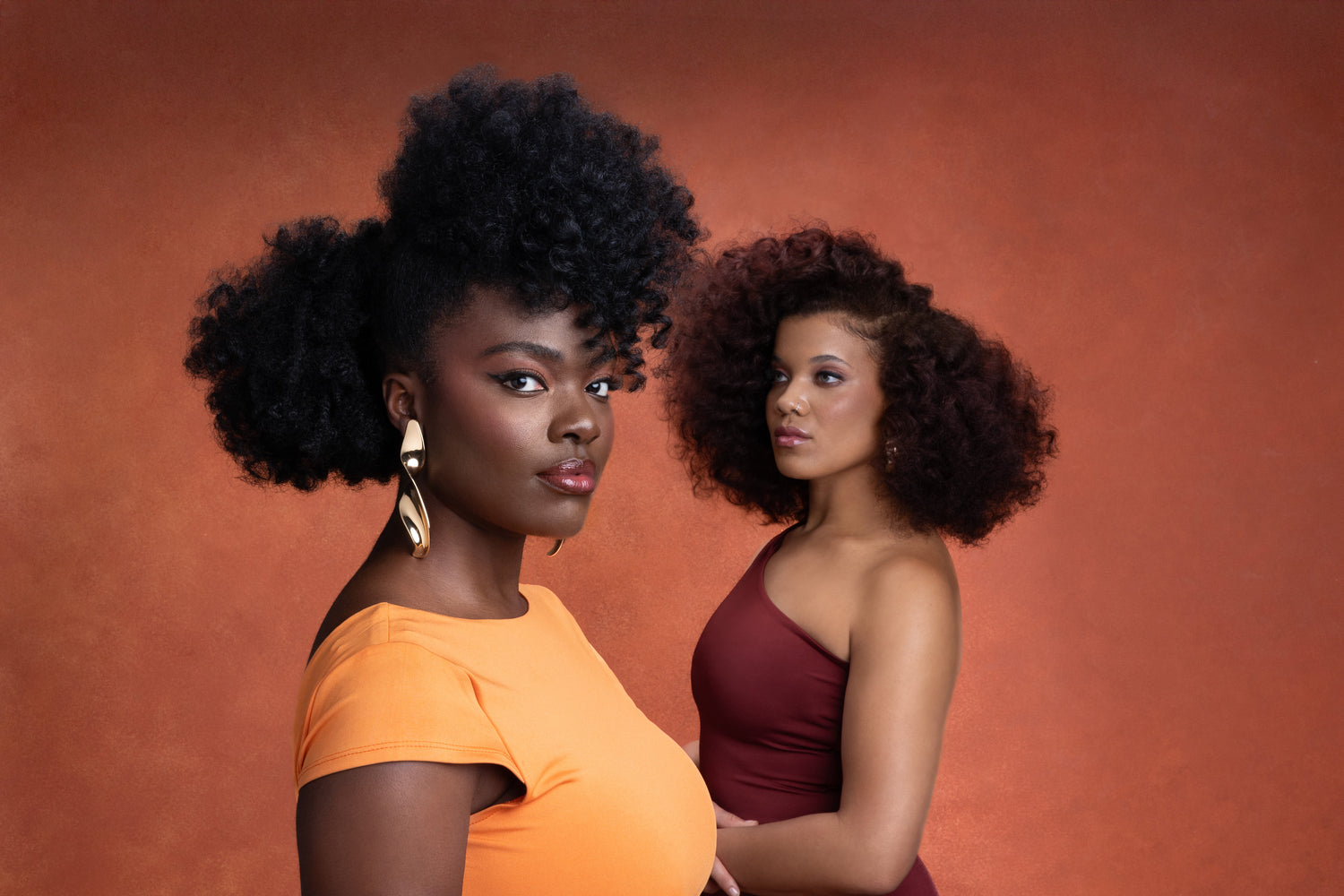This post was originally published on 11th August 2020. Due to its popularity, it was updated with the new tips on 18th August 2021.
Dry scalp can often be flaky and itchy, and it’s one of the most common problems that many people face.
Wondering why you have dry scalp? Our comprehensive guide covers everything: from symptoms, common causes, and how to treat your dry scalp.
What Is Dry Scalp?
A dry scalp is a condition where the scalp skin is dry/not moisturised enough (for multiple reasons), and is characterised by white, tiny, dry flakes.
7 Common Dry Scalp Causes
There are many reasons as to why you have dry scalp but here are some of the most common causes...
Hair Washing (The Wrong Way)
We know that washing your hair frequently can dry it out, but did you know it can also dry your scalp?
Quality scalp oils emulate the natural sebum produced on the scalp, they help to moisture to permeate to keep your scalp and roots looking and feeling great. Apply immediately after washing and a couple of times throughout the week can help maintain a healthy scalp.
The Weather
Wondering why you have dry scalp when the weather changes or it hits autumn/fall or winter? Drops in temperature can play havoc with your scalp and hair.
So if you notice that your scalp is getting drier during these transitional months but you haven’t made any changes to your routine, it’s probably due to the colder, drier weather which can strip your skin of moisture and make it feel dry. Again, applying a quality scalp oil can help with this.
Dandruff vs Dry Scalp
Suffering from an itchy, dry, scalp? You may confuse dandruff with dry scalp as they both have similar symptoms like flaking and itchiness.
As we mentioned above, a dry scalp is a condition where the scalp skin is dry/not moisturised enough (for multiple reasons), and is characterised by white, tiny, dry flakes.
While dandruff is a scalp condition that presents large, yellowish and usually greasy scales. The scalp and hair tend to feel oily and itchiness may still be present even when the scalp does not feel necessarily dry.
Dandruff requires special active treatments and moisturising for best, long-term effects, whereas a dry scalp can be treated with adequate shampooing and subsequent moisturising.
Product Build Up
A dry flaky scalp can also be caused by product build up, which can occur when the scalp comes in continuous contact with products that aren’t meant for it. This means if you are co-washing with a regular conditioner or even using a co-wash, it’s likely that you have product build up.
We’d recommend using a sulphate-free shampoo to wash your hair and cleanse your scalp every 7-10 days to avoid this.
Using The Wrong Products
We've read the blogs, seen the headlines and watched the news reports... the reality is that many Afro 'hair care products' on the market are riddled with chemical nasties that cause health issues. These problems include skin issues, asthma, cancer, miscarriages and even infertility.
Now is the time to really take stock of your products, read the ingredient lists and find brands that you can truly trust.
At Afrocenchix, we’ve always taken the time to make sure our vegan-friendly products are safe, effective and simple. Want to know more? You can find out more about our products by watching our video about why we love using natural ingredients.
Chemical Treatments
The chemical processes like relaxing hair or colouring hair can leave your scalp very dry, irritated and sensitive. Think about ditching or reducing these chemical treatments.
Editor’s tip: Thinking about transitioning? Our Newly Natural Set comes with everything needed for new naturalistas embarking on their natural hair journeys.
Sunburn
Was your dry scalp soon after you’d exposed your scalp to the sun? If so and your scalp is also red and irritated, you might have a cause of sunburn.
In short, it's best practice to cover your head and hair with a brimmed hat to make sure your hair, scalp and skin are protected from the sun. There are all sorts of UV protectors on the market for your hair which aim to help protect your hair from the sun. But coverage and limiting sun exposure is always best. If you are wearing your hair in a style that exposes your scalp, you might want to add extra protection to that skin with a bit of sunscreen.
How To Treat Dry Scalp: Best Treatment For Dry Scalp
Looking for the best treatment for dry scalp? A lot of mainstream products contain artificial fragrances which can cause asthma, eczema, muscle pain, bloating, sinus pain, fatigue, eye irritation, gastrointestinal problems, headaches, dizziness and burning or itching skin irritations. So we would recommend using products (like Afrocenchix) which are safe, natural and effective, that you use with your simple hair routine.
We recommend washing your hair every 7-10 days using a mild, sulphate-free shampoo. This includes when you have your hair in a protective style. This will ensure that there is no scalp build-up, that you remove enough sebum, and that dirt and dust is gone.
Swish was formulated to be gentle enough to use once a week. Our sulphate free shampoo gives your hair a crisp clean and removes buildup without stripping your hair of moisture.
To protect your scalp you can rub it with oily products to compensate for the sebum lost while shampooing.
Soothe has anti-inflammatory properties, which work to combat dryness and promote healthy hair growth. Applying such an oil to your scalp immediately after washing and a couple of times throughout the week to treat your dry scalp.
NB: Very dry scalp still? If you are suffering from a dry scalp and hair loss, fever or swelling, it's best to book an appointment with your GP or trichologist as soon as possible.
More Articles:
Do I Really Need to Use a Scalp Oil?

